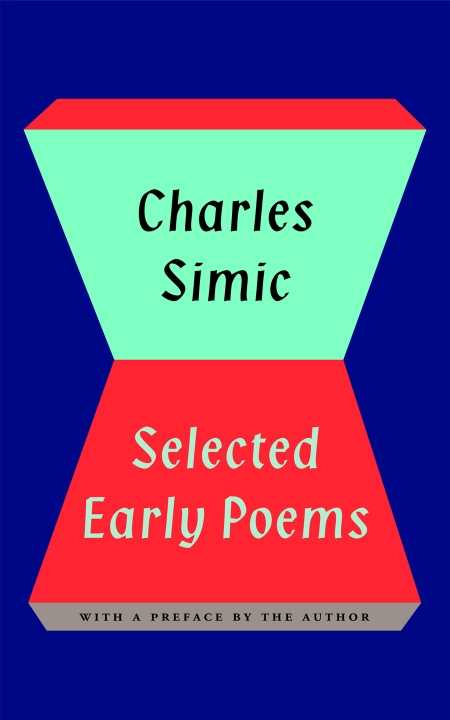Selected Early Poems
In Charles Simic’s early work, he’s vulgar, sublime, funny, philosophical, and irreverent.
Among the most prolific and widely read poets of his generation, Charles Simic has served as US Poet Laureate and won a Pulitzer Prize in 1990. In honor of his 75th birthday, he has released a selection of poems from his early years, 1963-1983.
Simic was in his twenties when he started writing poetry in earnest. A Serbian survivor of the Second World War, he made his way to New York by way of Illinois and Paris, working in offices to pay rent and attending night school to earn a degree in Russian language and literature. He hung around the margins with other new immigrants, writing his first poems in English rather than his native Serbian.
Simic is known for his surrealist atmospheres, imagery of Eastern Europe, and brevity; it’s interesting to return to his early work and notice the consistency of his vision. Those familiar with Simic’s career will find his earliest poems already display skillfulness and a rare imagination. In the preface, Simic describes a lifelong love of chess and draws a parallel with the writing process: “The kind [of poems] I like to write, which tend to be short, require endless tinkering. They depend for their success on the placement of word and image in proper order, and their progression duplicates the inevitability … and surprise of an elegantly executed checkmate.”
In these poems are objects that might otherwise escape attention: rodents, headless dolls, knives, bedbugs, cabbages, and pigs. He’s vulgar, and he’s sublime. He’s often funny. He’s philosophical and irreverent. The poems are richly layered in their meanings, often employing the logic of riddles or fables. Yet readers will feel the pleasures immediately, because of his empathy. If we are lonely like the speaker, we’ll find a companion. If we, too, suffer insomnia, we’ll find him sleepless, with reasons to enjoy the night.
In ‘Butcher Shop,’ the first poem of his own that Simic recalls “liking,” he writes, “There is a wooden block where bones are broken, / Scraped clean—a river dried to its bed / where I am fed, / Where deep in the night I hear a voice.” This seems a fair description of where and how he finds his subjects and how they speak to him as a kind of haunting.
This collection is recommended reading for any serious student of modern poetry, Simic fans, and those new to the genre. Charles Simic extends a warm welcome, and he will win the reader over, one way or another.
Reviewed by
Holly Wren Spaulding
Disclosure: This article is not an endorsement, but a review. The publisher of this book provided free copies of the book to have their book reviewed by a professional reviewer. No fee was paid by the publisher for this review. Foreword Reviews only recommends books that we love. Foreword Magazine, Inc. is disclosing this in accordance with the Federal Trade Commission’s 16 CFR, Part 255.

